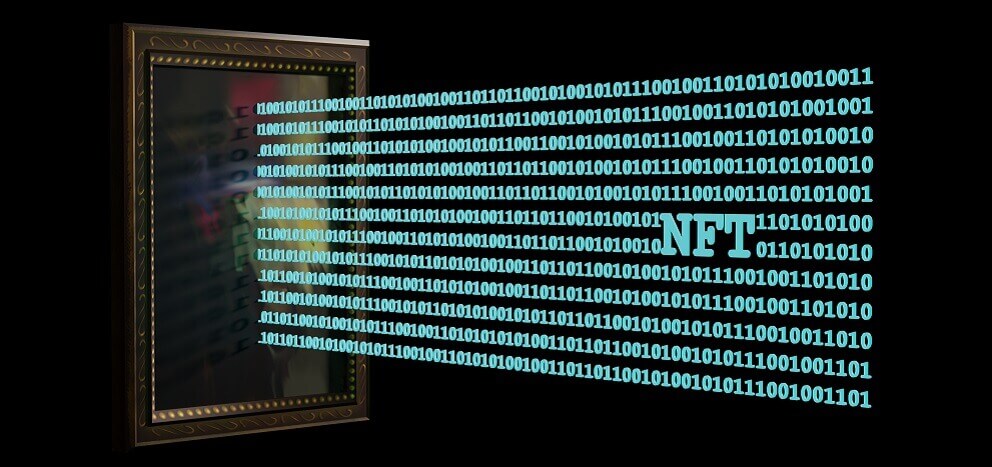How Do Chargebacks Work with NFTs?

Non-fungible tokens (NFTs) have become a growing hit among a new class of collectors, traders and asset investors. These digital goods store data on a blockchain, whether it be photos, videos or audio, with rights to the file belonging to the owner. In the first quarter of 2021, over $2 billion in NFTs were sold, according to CNBC. Which begs the question, what happens when a buyer seeks a chargeback on an NFT sale?
But first, how do you buy an NFT?

How to buy NFTs
Buying NFTs on most NFT marketplaces works like an auction or eBay. You place a bid, and wait to see if you win your chosen NFT. Like eBay, some sites also have “Buy Now” options, where NFTs can be bought immediately for a fixed price.
There are already quite a number of different NFT marketplaces catering to different categories and audiences. Some list a variety of tokens, from art and music to trading cards and domain names, while others sell only niche branded collectibles, like the one for North American basketball league, NBA Top Shot. Well-known NFT marketplaces include OpenSea.io, Mintable and SuperRare.
Purchasing NFTs with ether
Prices on NFT marketplaces are usually listed in terms of ether, since most NFTs are built upon the Ethereum blockchain. Ether is the currency of the Ethereum blockchain. Oftentimes, marketplaces will place the dollar value alongside the ether price. However, the dollar value can change frequently due to the volatility of the cryptocurrency trading prices.

To complete the purchase of an NFT. You must use a cryptocurrency wallet that contains ether you have previously purchased. Some crypto wallets commonly accepted across different marketplaces are MetaMask, Coinbase Wallet and Formatic, among others. No single wallet can be used across all NFT marketplaces.
Each transaction is subject to a fluctuating “gas fee.” This is money that goes to the blockchain “miners” who provide the computing power to solve the cryptographic puzzles needed to validate transactions.
Risk of fraud on blockchain
A blockchain is a digital ledger shared by all computers on the network, making it immutable once a transaction is processed. Once an NFT is purchased neither the gas fee, the sum of ether transacted, nor ownership of the NFT can be reversed. However, if the purchase was made with credit/debit card a purchaser who successfully requests a chargeback keeps the good and their cash.
This poses problems for marketplaces that accept credit card payments on behalf of sellers. Essentially, these marketplaces need to implement policies to reduce the risk of chargebacks occurring and/or they must employ a chargeback mitigation team to fight friendly fraud.

For starters, NFT marketplaces, much like cryptocurrency exchanges, need to invest in strong cybersecurity and prevent the use of stolen credit card details to buy NFTs.
For example, users of NFT marketplace Nifty Gateway reported back in March that hackers stole digital artwork worth thousands of dollars from their accounts. Some of those hacked also said their credit cards on file were used to purchase additional NFTs, also costing thousands of dollars, which were then transferred away to hackers’ accounts.
In that case, Nifty Gateway said that the accounts that were hacked were not protected by two-factor authentication (2FA). However, even 2FA is vulnerable to fraudster tactics, such as SIM swap fraud. NFT marketplaces are going to have to boost their security if they are going to protect their clients’ assets.
Fighting chargebacks directly
Some marketplaces have already implemented policies to fight chargebacks head-on. NBA Top Shot, for example, explicitly limits withdrawal access to traders to those who have an account that was created at least 45 to 60 days before the withdrawal date. They state this is supposed to reduce the likelihood of new users seeking to take advantage of illegitimate credit card chargebacks to quickly buy NFTs and cash out.
“Allowing people from around the world to use credit cards in the crypto space opens doors for NFTs in the future but also provides avenues for abuse,” says the marketplace in a blog post explaining the policy.
Of course, even with Top Shot’s withdrawal access policy, not all friendly fraud chargebacks can be prevented. Fraudsters will let accounts sit for 60 days before they try to get merchandise for free by charging back the credit card transactions that were made into the crypto to purchase the NFT. The exchange or marketplace that accepted the credit card payment and in return provided crypto will take the financial hit.
The users doing this will often claim to their card issuers that they never authorized a purchase on their card or that the cryptocurrency wasn’t delivered as described. However these claims can be disproven using analysis and utilizing third party data tools.
Taking advantage of Justt’s expertise
That is where Justt’s chargeback mitigation service comes in. We have experience working years in the crypto space with fighting friendly fraud chargebacks that involve blockchain purchases. Instead of having marketplaces in the booming NFT space build out their own internal chargeback teams, they can rely on an industry leader to manage the process for them while they focus on driving growth in their rapidly moving business.
To learn more about Justt’s experience servicing cryptocurrency clients, contact us.
Take the next step and contact us






